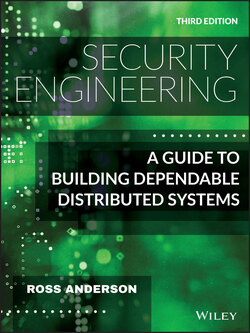Читать книгу Security Engineering - Ross Anderson - Страница 81
3.2.5.5 The affect heuristic
ОглавлениеNudging people to think in terms of intent rather than of mechanism can exploit the affect heuristic, explored by Paul Slovic and colleagues [1791]. The idea is that while the human brain can handle multiple threads of cognitive processing, our emotions remain resolutely single-threaded, and they are even less good at probability theory than the rational part of our brains. So by making emotion salient, a marketer or a fraudster can try to get you to answer questions using emotion rather than reason, and using heuristics rather than calculation. A common trick is to ask an emotional question (whether ‘How many dates did you have last month?’ or even ‘What do you think of President Trump?’) to make people insensitive to probability.
So it should not surprise anyone that porn websites have been used to install a lot of malware – as have church websites, which are often poorly maintained and easy to hack. Similarly, events that evoke a feeling of dread – from cancer to terrorism – not only scare people more than the naked probabilities justify, but also make those probabilities harder to calculate, and deter people from even making the effort.
Other factors that can reinforce our tendency to explain things by intent include cognitive overload, where the rational part of the brain simply gets tired. Our capacity for self-control is also liable to fatigue, both physical and mental; some mental arithmetic will increase the probability that we'll pick up a chocolate rather than an apple. So a bank that builds a busy website may be able to sell more life insurance, but it's also likely to make its customers more vulnerable to phishing.
